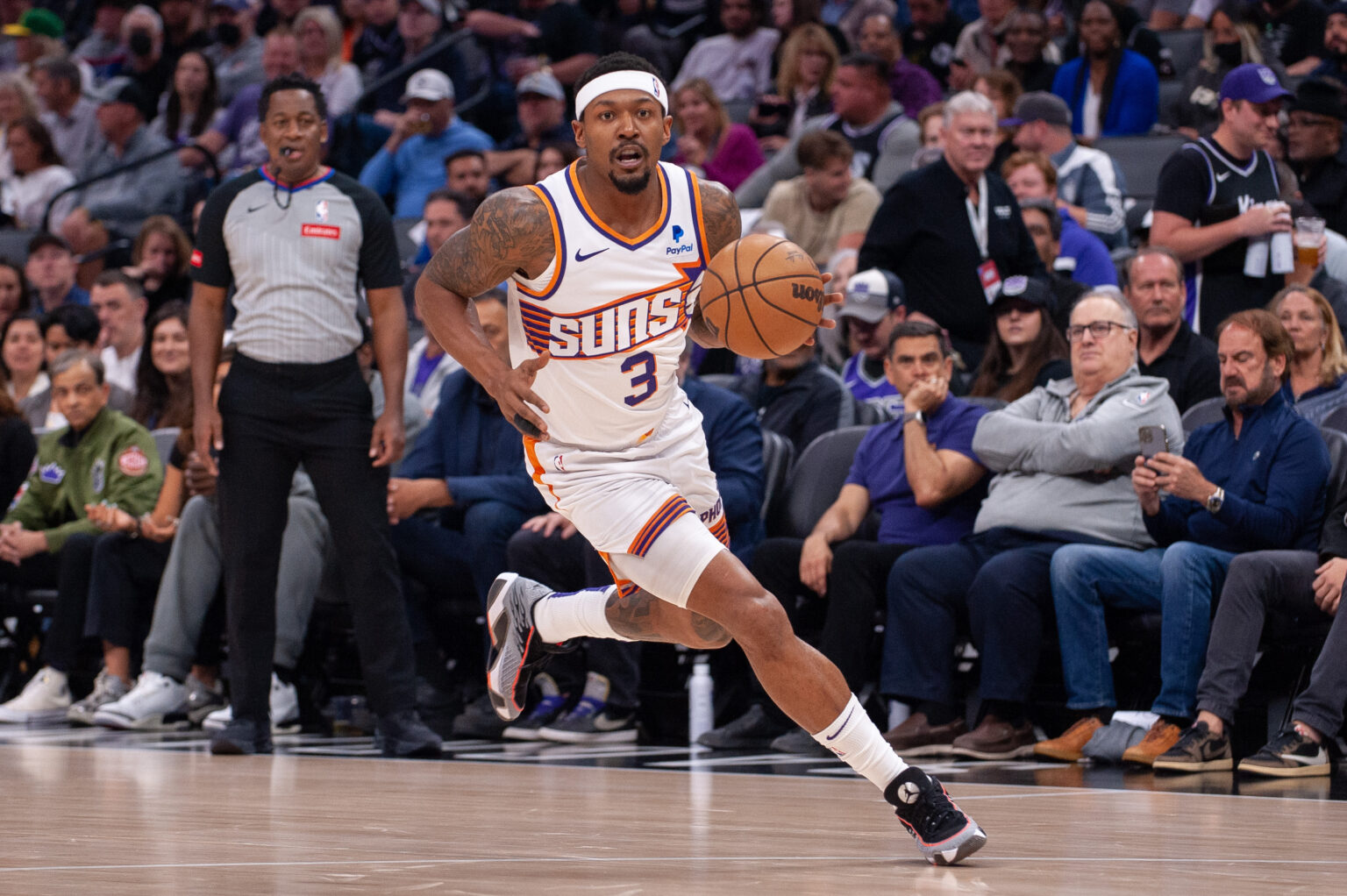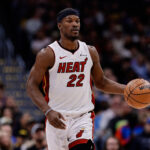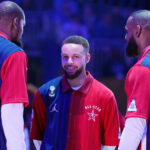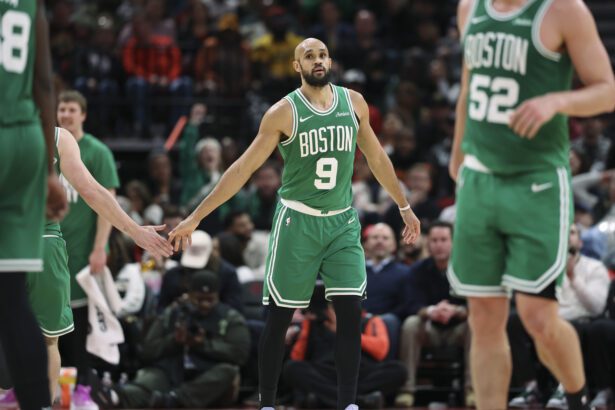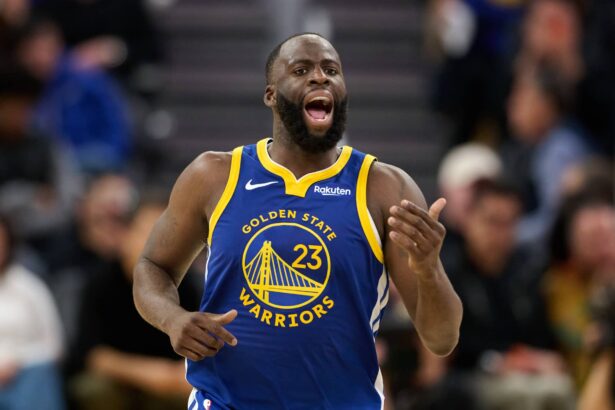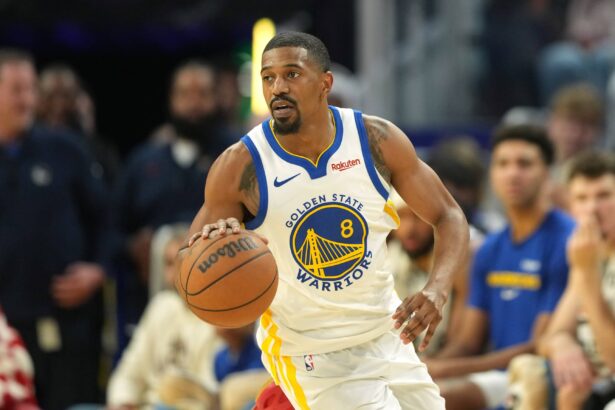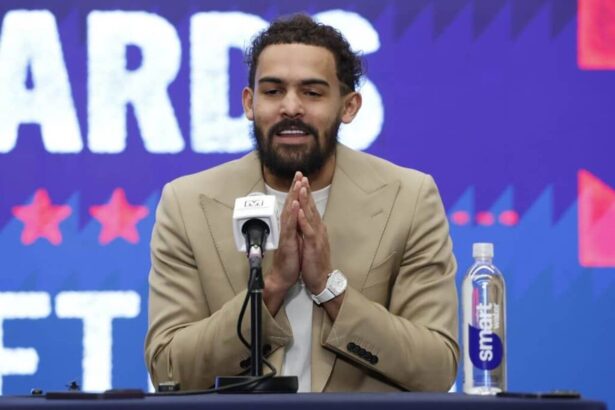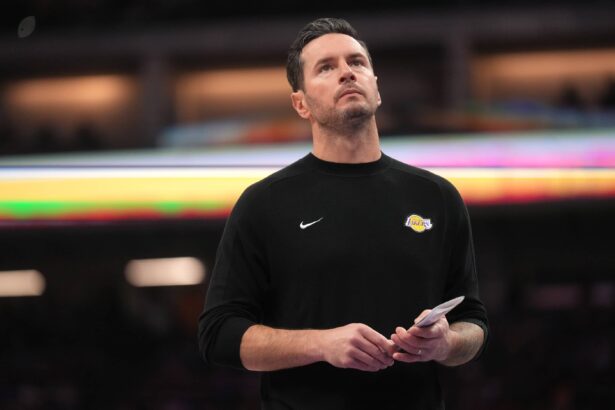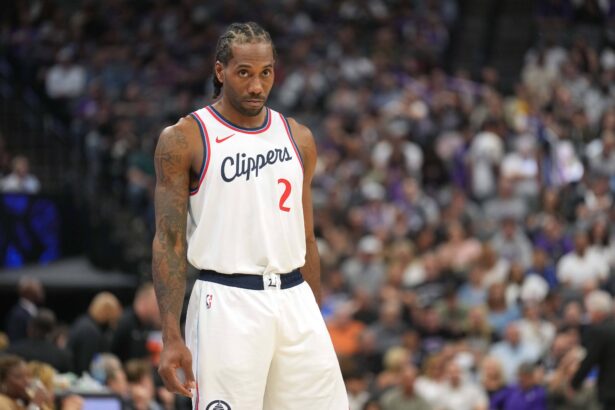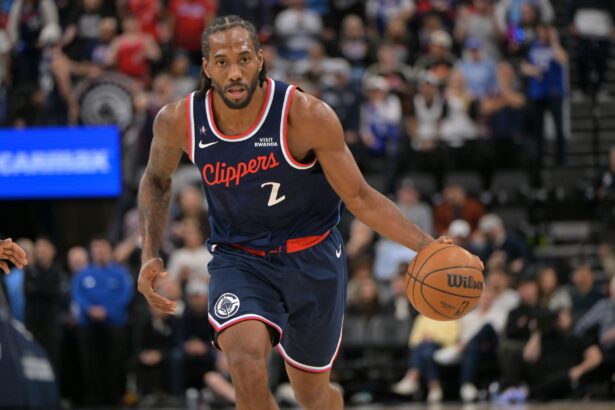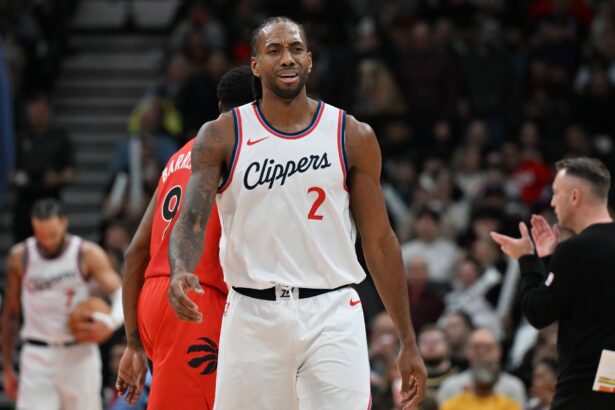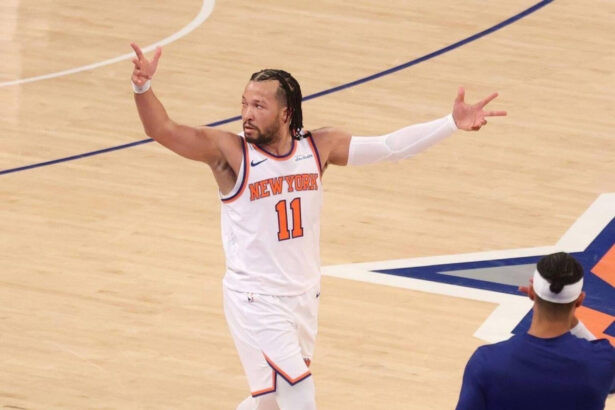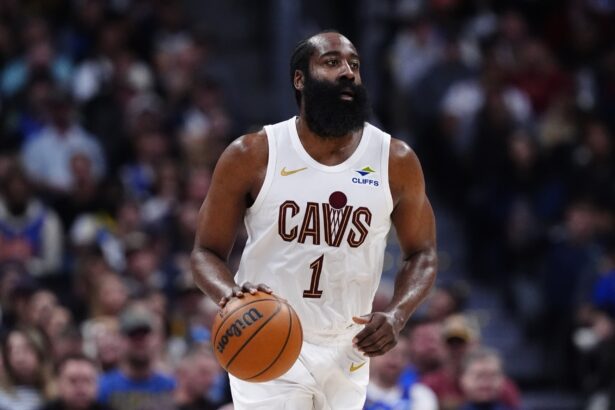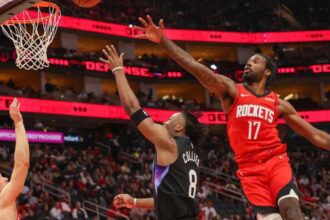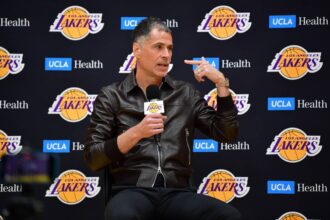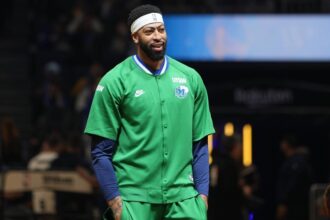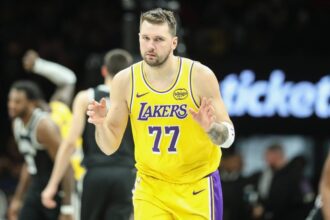The NBA is all about evolution, and sometimes that means even the biggest names need to take a step back. For some NBA stars, the 2024-25 season will mark a shift from being go-to guys to playing more supportive roles. Whether due to age, team dynamics, or new talent on the roster, these players are about to experience a change. Let’s dive into who’s facing this transition.
CJ McCollum
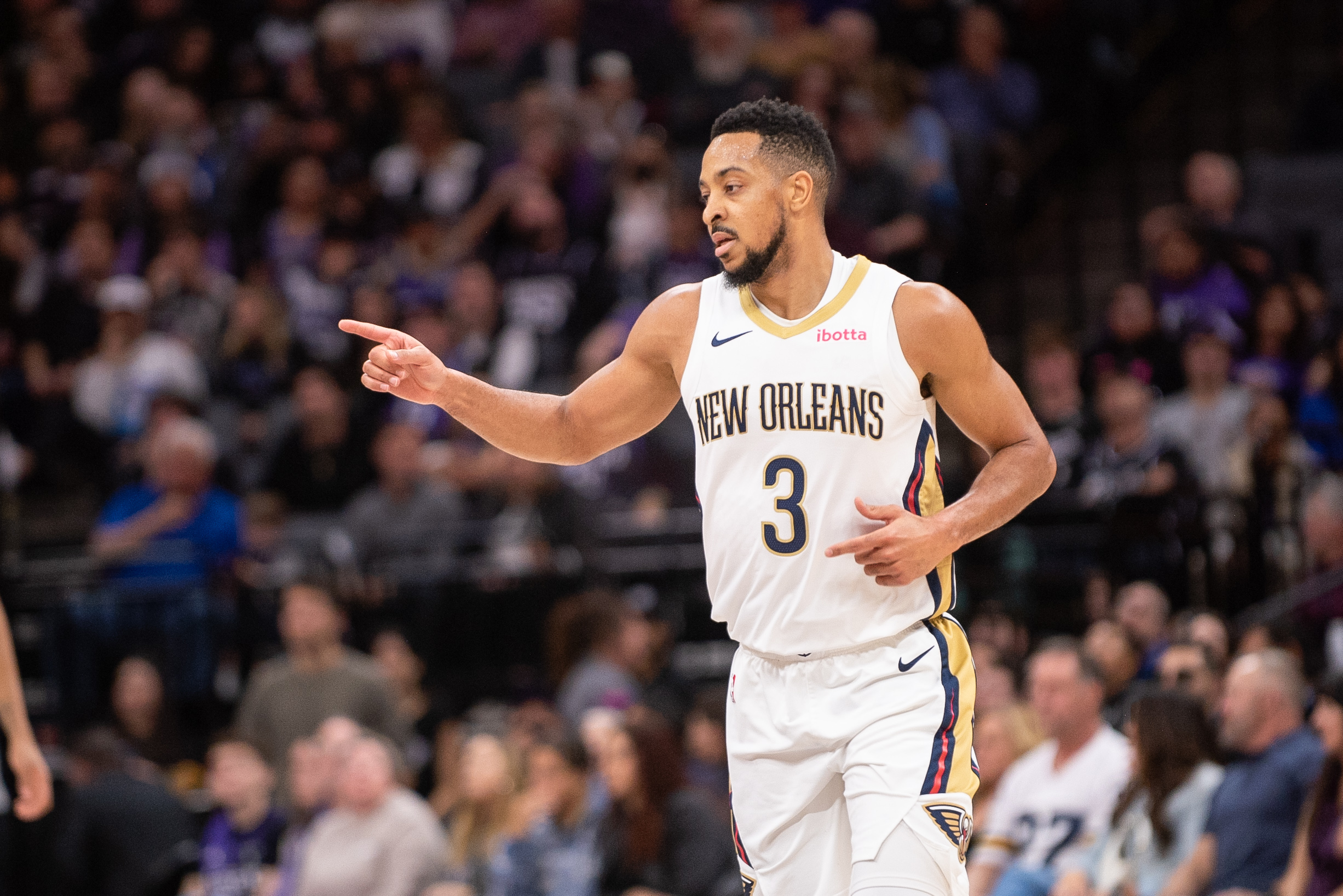
CJ McCollum has been a key piece for the Pelicans since he arrived, but with Zion Williamson healthy and Brandon Ingram still in the mix, McCollum’s role is about to shift. The Pelicans brought in Dejounte Murray this offseason to handle the point guard duties, letting CJ slide back into his natural shooting guard spot. At 32 years old, and coming off a season where he averaged 20.0 points, 4.6 assists, and 4.3 rebounds in 66 games, McCollum might need to embrace being a fourth option.
Ingram, who is entering the final year of his contract, is likely to take on an even bigger role this season as he looks to secure his next deal. This puts CJ in an interesting spot. While he’s still capable of scoring at a high level, the Pelicans will need him to focus more on being a floor spacer and secondary playmaker. With Zion and Ingram demanding the ball, McCollum might not see as many touches as he’s used to, but that doesn’t mean he won’t have a big impact.
CJ’s been dealing with some injuries over the past few seasons, and at this point in his career, it’s about picking his spots. He’s still an elite shooter, and with Murray feeding him the ball, McCollum could thrive as a catch-and-shoot guy, focusing more on efficient scoring rather than volume.
The Pelicans are built around their young stars, but having a veteran like McCollum who knows how to score and lead will be crucial, especially come playoff time. It’s all about fitting into this new dynamic and helping the team succeed, even if it means a smaller role than he’s used to.
Tobias Harris
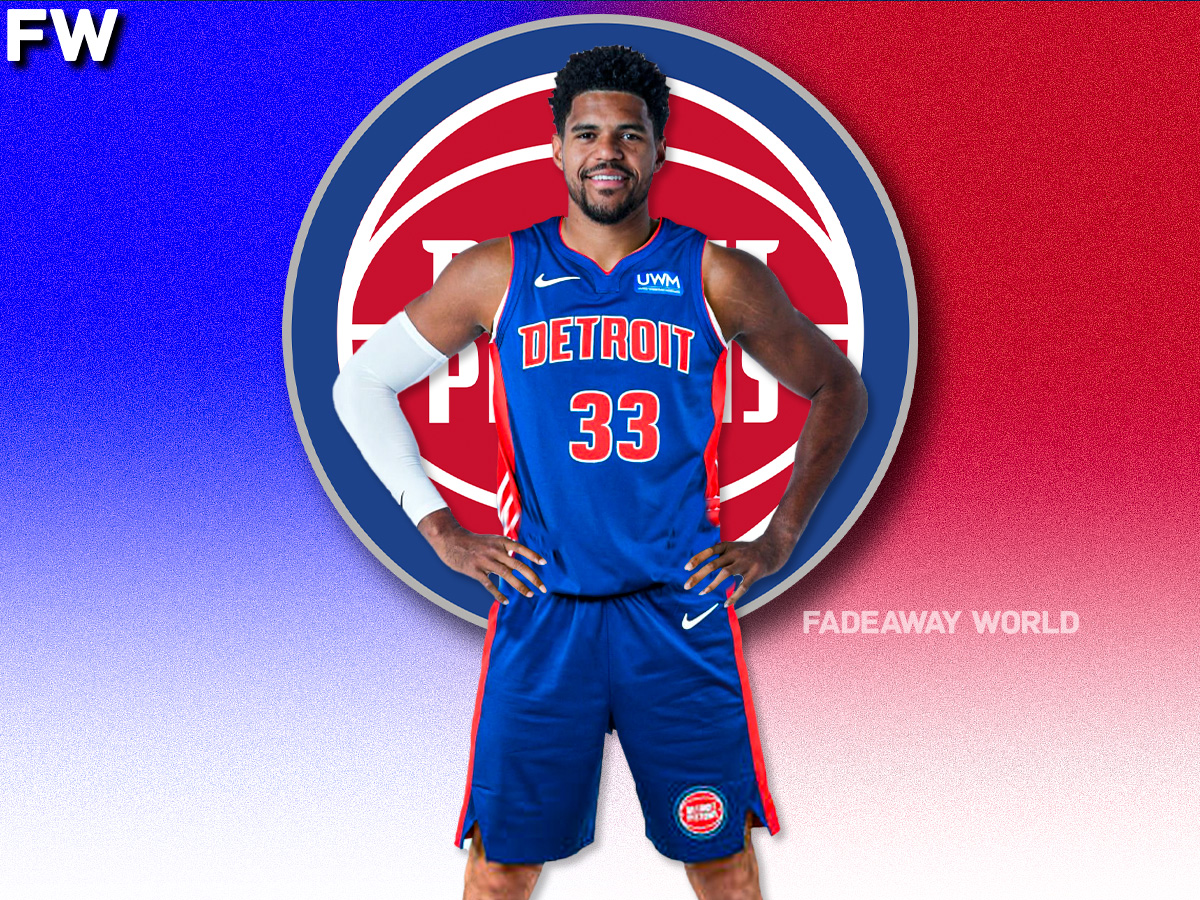
Tobias Harris is back in Detroit after signing a two-year, $52 million deal with the Pistons in the 2024 offseason. At 32, he’s heading into a completely different situation than the last time he played for the Pistons back in 2017. This time around, he’s no longer expected to be the top guy on a rebuilding team, but rather a veteran presence to guide their young core.
Harris is coming off a solid season where he averaged 17.2 points, 6.5 rebounds, and 3.1 assists with the 76ers. But now, with players like Cade Cunningham, Jaden Ivey, and Jalen Duren rising as the faces of the franchise, Harris will likely need to adapt to a smaller role. His scoring ability and versatility as a forward will still be important, but he’s not going to be the focal point of the offense like he was at times in the past.
This shift might not be easy for someone who’s used to being one of the top scoring options, but it’s a natural transition as he gets older. Harris will likely be asked to play more off-ball, spotting up for threes and using his experience to pick his moments. While his shot-making will still be crucial, he’ll also be counted on to help the young guys develop and be a steady presence on both ends of the floor.
The Pistons aren’t expected to be contenders just yet, but with Harris providing some leadership and stability, he could play a big part in helping them take the next step. And let’s not forget, Harris is in the final year of his deal after this season, so he’ll have every reason to show he’s still got plenty left in the tank—whether that’s for another contract in Detroit or elsewhere.
Klay Thompson
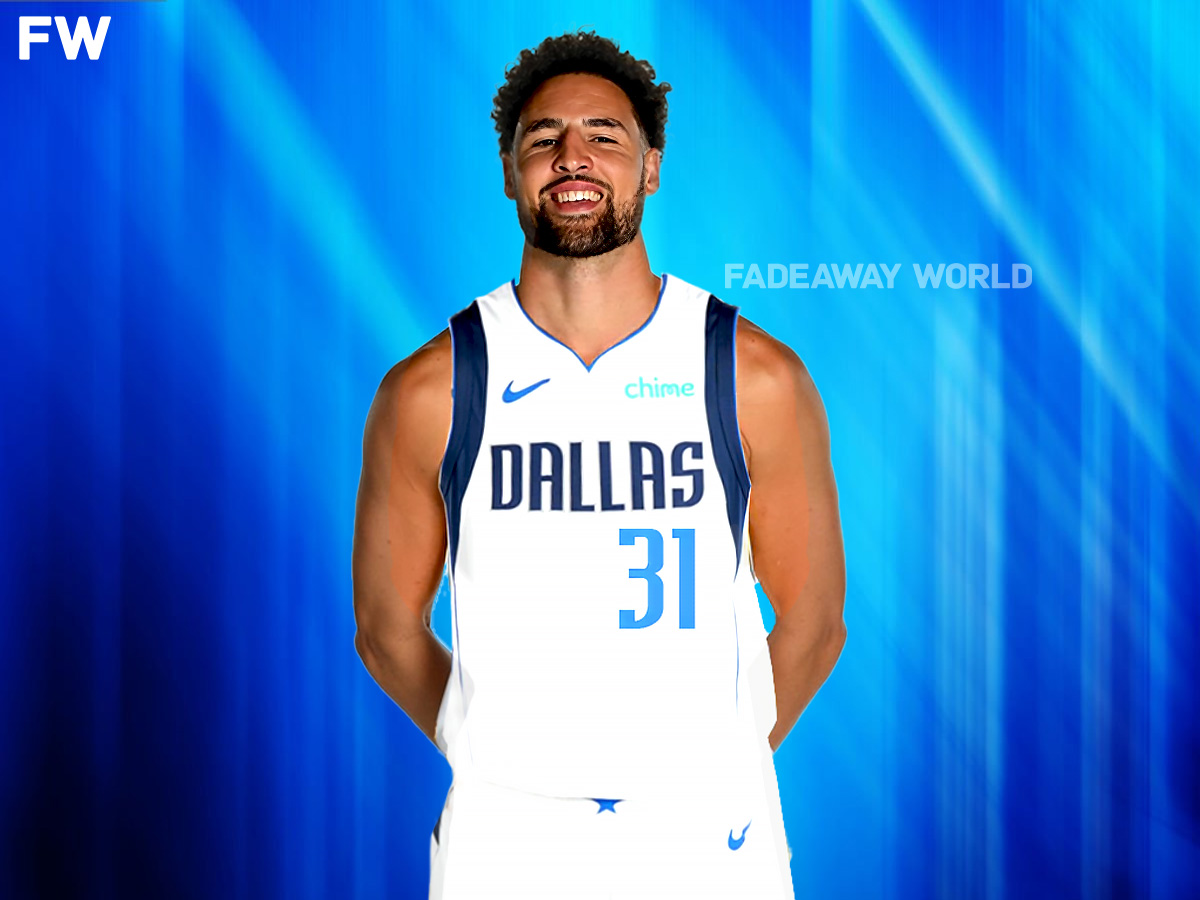
Klay Thompson is no longer the star he once was, and his role with the Mavericks will reflect that. At 34, he’s dealt with significant injuries, including a torn ACL and Achilles, which caused him to miss the entire 2019-20 and 2020-21 seasons. These injuries have impacted his athleticism and lateral movement, meaning Klay can no longer be the dominant two-way player who was pivotal in the Warriors’ championship runs.
In Golden State, Klay’s production has already been on the decline. While he averaged 17.9 points in 2023-24, it was a noticeable drop from his peak seasons, and his shooting percentage from three fell to 38.7%, down from his career average of over 41%. More importantly, Klay wasn’t the primary scorer anymore. Steph Curry and Jordan Poole took on more of the offensive load when he got back to the court, and Klay transitioned into more of a catch-and-shoot role, focusing on spacing the floor rather than creating his own shot. And with Wiggins’ steep decline plus Poole’s departure before the 2024 season, Klay proved last year that although productive, he isn’t that offensive juggernaut he used to be as a second option.
Now, in Dallas, Klay’s role will be even more limited. With Luka Doncic and Kyrie Irving as the clear primary playmakers, both of whom are ball-dominant guards, there’s no need for Klay to be a 20+ point-per-game scorer like he was in his prime. Doncic and Irving will handle the bulk of the offense, while Klay will be asked to play off the ball, spot up from deep, and knock down open shots.
His age and previous injuries have also reduced his ability to defend at the level he once could. Thompson used to be an elite perimeter defender, but after the Achilles and ACL tears, he’s lost a step. This means he’s no longer a two-way threat and has to rely more on his shooting and experience.
In Dallas, the Mavericks don’t need him to be the superstar he was in Golden State. Instead, he’ll play more of a supporting role, providing veteran leadership and being a reliable shooter in key moments.
Bradley Beal
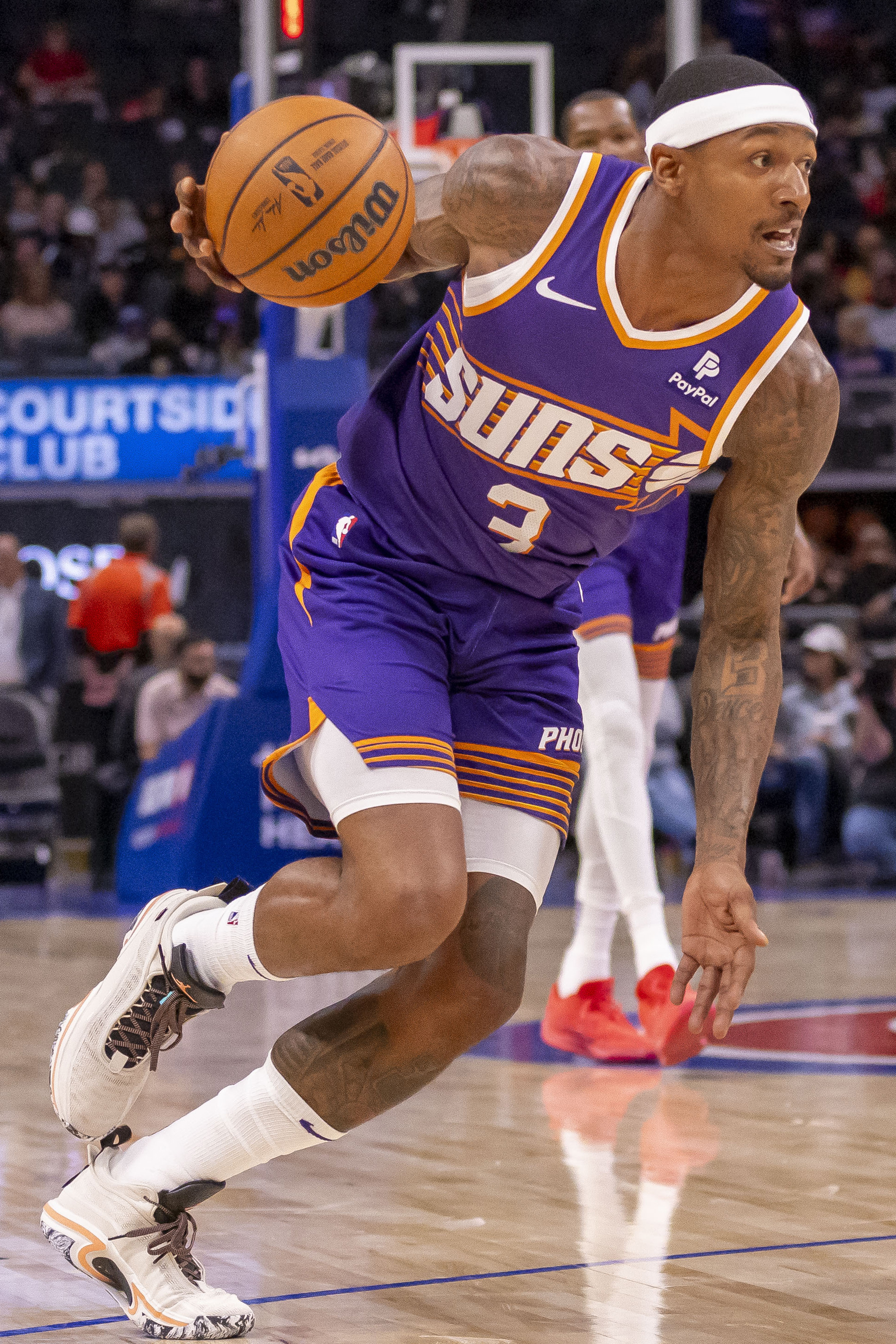
Bradley Beal’s 2023-24 transition to the Phoenix Suns is a clear sign that he’s moving into more of a role player position rather than being the star he once was. After years as the primary scoring option for the Washington Wizards, Beal joined a stacked Suns roster featuring Devin Booker and Kevin Durant, who took on much larger roles in the offense. Beal is now the third option, drastically changing his court responsibilities after having a shocking debut season in the Valley.
In his first season with the Suns, Beal’s stats reflected this shift. He averaged 18.2 points per game, which is the first time in nearly a decade he’s been under 20 points per game, as the Suns got bounced in the first round of the postseason, feeling the Big Three like a failure for now. This is a major drop from his previous seasons where he was scoring over 30 points at his peak in Washington. While his scoring volume has decreased, Beal’s efficiency hit career highs, including 51.3% from the field and 43% from three-point range, showing that even in a lesser role, he remains a dangerous shooter.
Beal is no longer expected to carry the load offensively. With Booker as the primary playmaker and Durant also demanding the ball, Beal’s job is to find his spots and make the most of the opportunities that come his way. The fact that he is now taking fewer shots and playing fewer minutes than in his prime means Beal must adjust to being more of a floor spacer and secondary scorer.
Additionally, Beal’s injury history is a concern. He missed several games during his debut season with Phoenix, further highlighting why the Suns are not relying on him to be the go-to guy anymore. With Booker and Durant taking on the primary offensive responsibilities, Beal is now in a role where he can focus on staying healthy and contributing efficiently, rather than putting up massive scoring numbers.
In short, Bradley Beal’s role on the Suns for 2024-25 is to be a complementary player, since he showed he lacked that superstar caliber level last year. He’s no longer the focal point, and with stars like Booker and Durant ahead of him, he’ll focus on shooting efficiently, spacing the floor, and contributing when called upon, making him an essential but lesser piece of Phoenix’s championship puzzle.
Khris Middleton
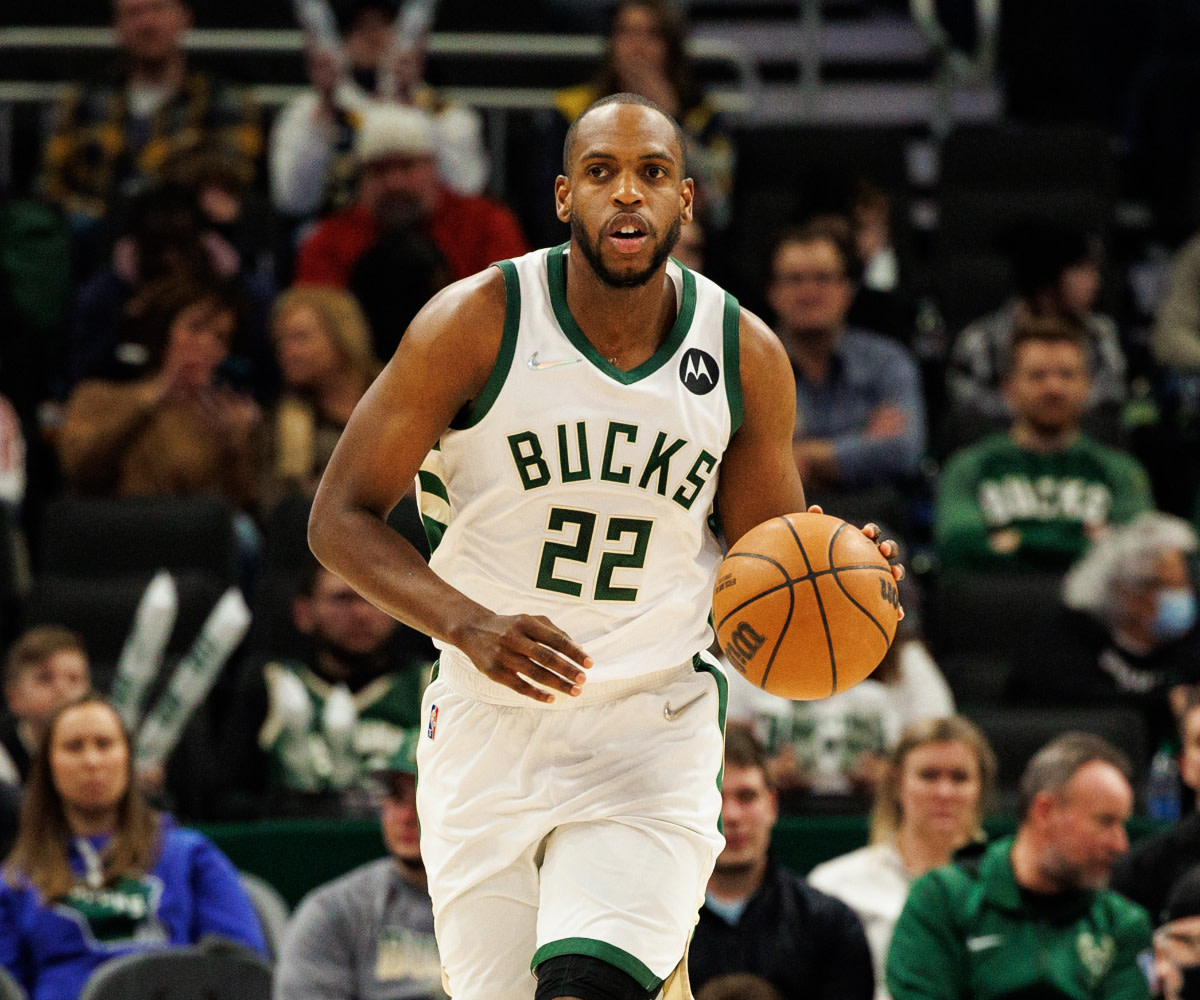
Khris Middleton is no longer the star he once was for the Milwaukee Bucks, primarily due to injuries and the emergence of Giannis Antetokounmpo and Damian Lillard as the dominant forces on the team. Middleton, now 33, has had multiple injury setbacks, which affected his production, dropping his scoring to 15.1 points per game in the 2023-24 season. With Lillard and Giannis taking on the bulk of the offensive responsibilities, Middleton is transitioning into a role player, focusing more on floor spacing, efficient mid-range shooting, and secondary playmaking.
His injury history has made it clear that the Bucks cannot count on him as a primary scoring option anymore. Middleton missed significant time last season due to injury, which disrupted his rhythm and limited his impact, playing just 33.3 minutes per game in 50 appearances. The addition of Lillard further pushes Middleton into a more supportive role, as he no longer needs to carry the scoring load like in past years.
Despite this, Middleton’s experience and efficient shooting still make him a crucial asset, especially in playoff scenarios. He remains an elite mid-range shooter and can knock down open shots, especially with defenses focusing on Giannis and Lillard. While his days as a 20+ PPG scorer are likely behind him, his ability to provide veteran leadership and reliable offense will be essential as the Bucks chase another title.
As the Bucks look to manage his minutes and keep him healthy for deep playoff runs since last year they faced a tough first-round exit, Middleton will be more of a spot-up shooter and secondary creator, ensuring the Bucks remain versatile offensively while giving him a chance to shine in a less physically demanding role.
Nikola Vucevic
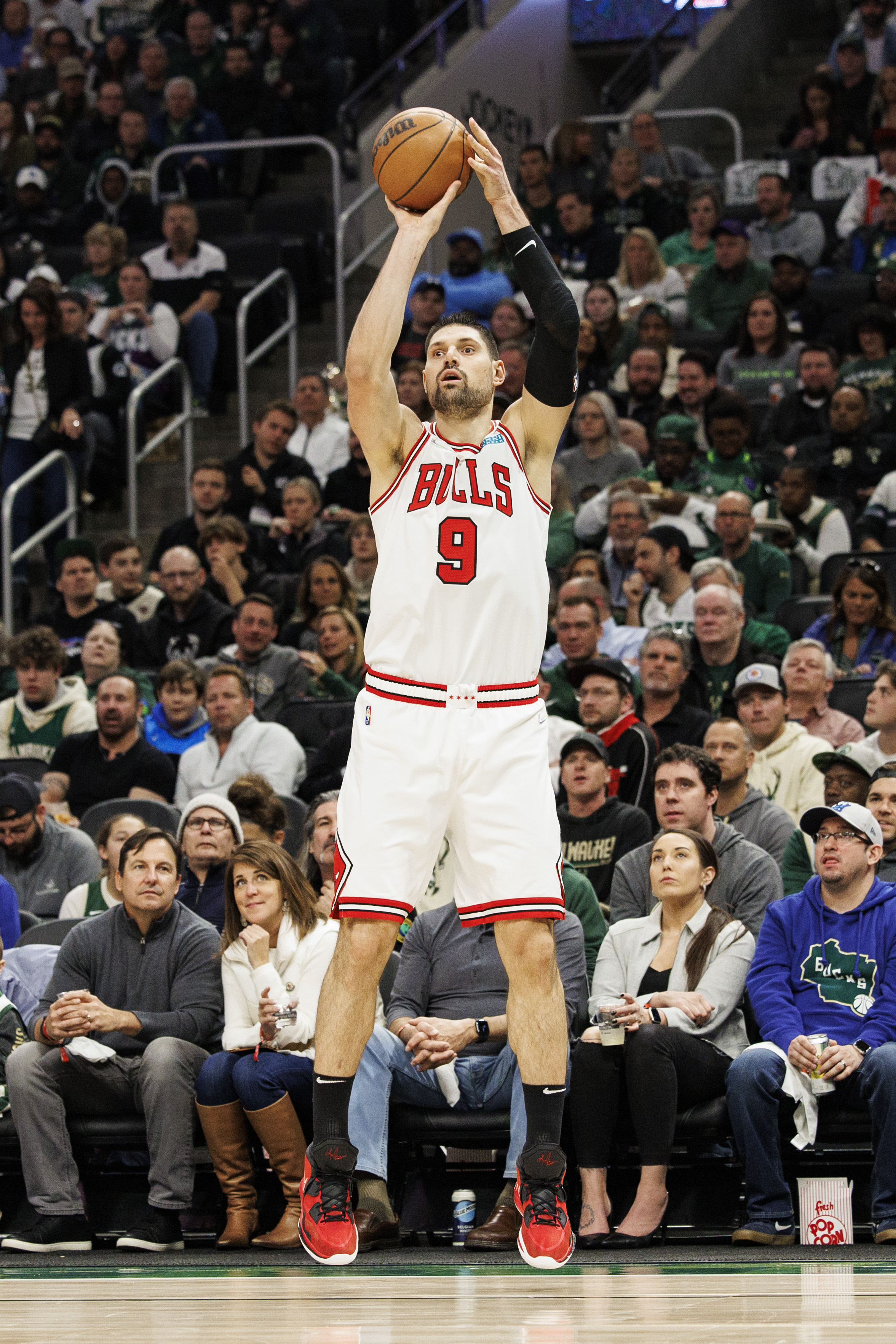
Nikola Vucevic’s situation with the Chicago Bulls has dramatically changed as the team heads into a rebuild for the 2024-25 season. The Bulls are no longer focused on maintaining a veteran-heavy roster, and Vucevic, once a key player in their offensive schemes, now finds himself in a much more secondary role. The front office made it clear with moves like trading Alex Caruso for Josh Giddey and drafting Matas Buzelis that the focus is on developing their young core. At 33 years old, Vucevic is no longer the primary offensive force he was a few years ago, and the Bulls are looking for other options.
In the 2023-24 season, Vucevic put up respectable numbers—18.0 points, 10.5 rebounds, and 3.3 assists—but his impact has been overshadowed by Chicago’s desire to build a younger, faster team. His role now revolves more around providing veteran leadership and rebounding rather than carrying the offense. The team is giving the offensive reins to the likes of Giddey, Buzelis, and Coby White, as they look to rebuild from the ground up.
The Bulls have been stuck in mediocrity for the last few seasons, missing the playoffs and failing to get out of the play-in tournament, leading to their decision to enter a rebuild. Vucevic, despite his productivity, doesn’t fit the timeline of the younger core, and his large contract makes him a prime trade candidate. Rumors about Vucevic being moved have persisted, and it’s clear the Bulls are open to the idea, especially if it means bringing in assets that can further the team’s rebuilding efforts.
While the Bulls would benefit from moving Vucevic, his value lies in his ability to space the floor, rebound efficiently, and be a stabilizing presence on the court. These are skills that contending teams will find attractive, but for Chicago, keeping him in a leading role risks blocking the development of their young stars. The Bulls want players like Giddey and Buzelis to take on more offensive responsibility, and having Vucevic as a secondary option ensures he doesn’t overshadow their growth.
Ultimately, Vucevic’s days as the focal point of the offense are behind him. The Bulls are clearly transitioning to a younger, more dynamic roster, and Vucevic’s role will continue to diminish as the team rebuilds. Whether he stays in Chicago or is traded, his focus will be on supporting the development of the Bulls’ future stars while maintaining his own efficiency and value as a veteran leader.
Fred Vanvleet
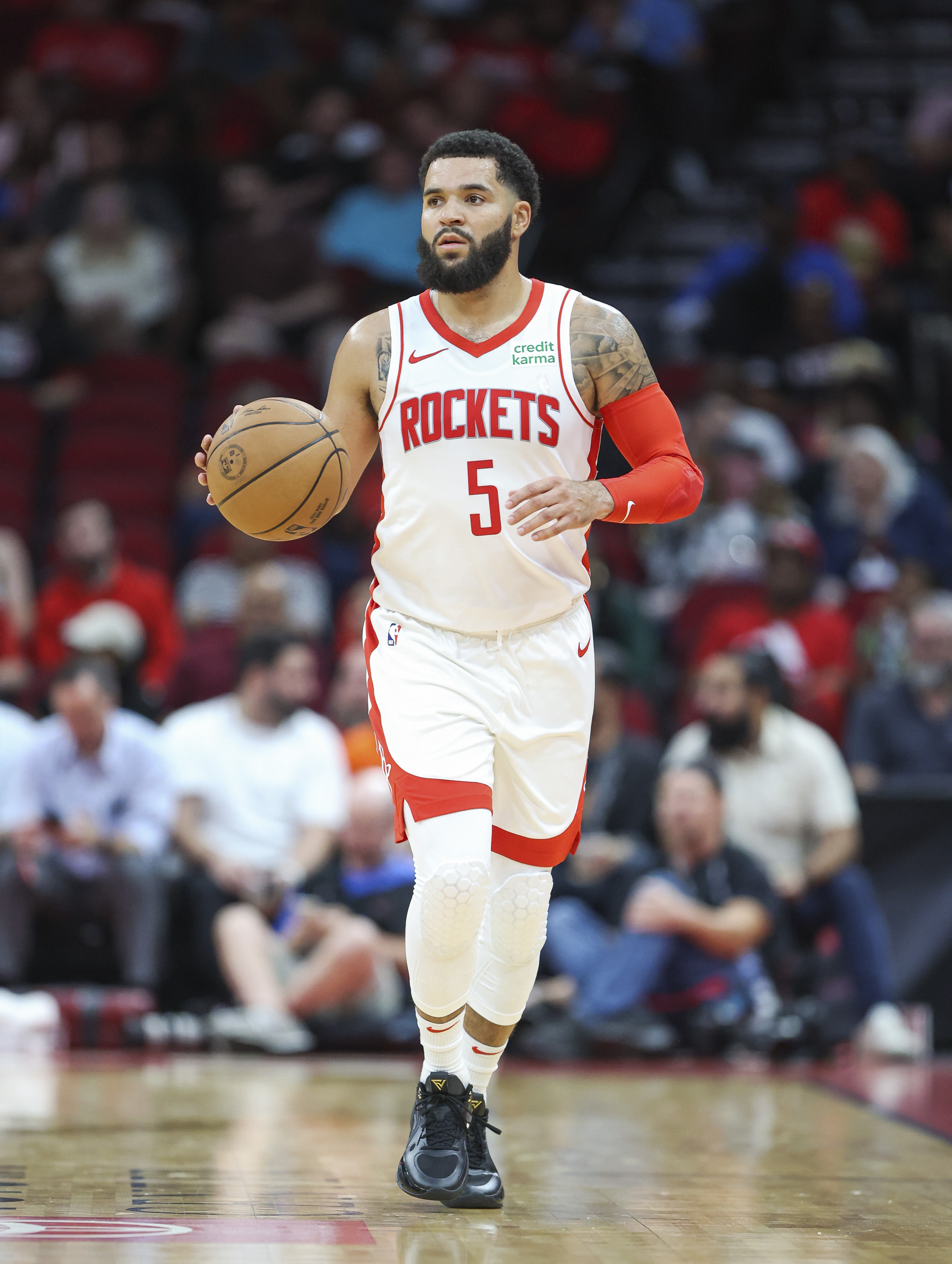
Fred VanVleet’s first season with the Houston Rockets in 2023-24 showed that while he’s still productive, his role has shifted. He averaged 17.4 points, 8.1 assists, and 3.8 rebounds, but his primary focus was guiding a young team rather than being the main scoring option. Houston’s roster is packed with developing talents like Alperen Sengun, Jalen Green, Amen Thompson, and Jabari Smith Jr., and VanVleet is there to help them grow while running the offense.
As Houston rebuilds, VanVleet’s leadership and playmaking are crucial. Though he’s no longer the go-to scorer, his high assist numbers show how much he’s embraced being the team’s floor general. This isn’t the same Fred from Toronto who was tasked with scoring every night. With young stars needing to develop, VanVleet’s job now is to facilitate, create opportunities, and keep the team running smoothly.
While Houston is committed to its rebuild, VanVleet still plays a significant role, both on the court and in the locker room. He’s there to mentor and guide the younger players while contributing to their success as a secondary option offensively. Moving forward, Houston may continue to lean on his experience, but VanVleet’s role will always be focused on setting up others, rather than being the top scorer like he once was in Toronto.

